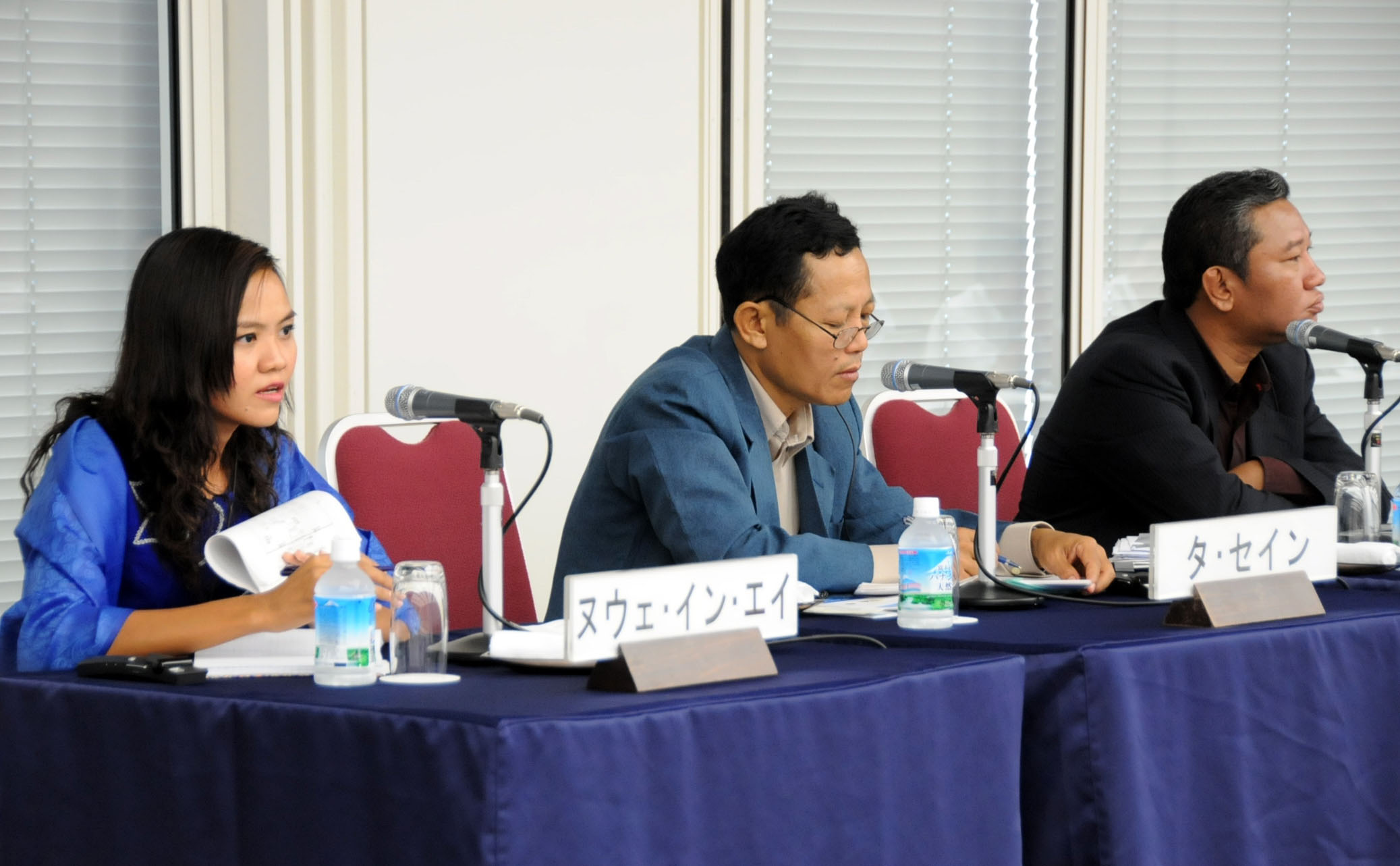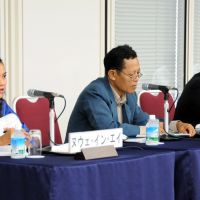The rapid political developments in Myanmar since last year, including the April by-elections that saw democracy leader Aung San Suu Kyi elected to parliament, have resulted in the easing of economic sanctions by Western nations, with businesses rushing to plan new investments to explore opportunities in the Southeast Asian country with a population of 60 million.
But the country still faces massive challenges including reforms of the bureaucracy and legal systems, infrastructure building, as well as trade and investment policy, said journalists from English-language publications in Myanmar who spoke in Tokyo last month.
"Lack of transparency, information, infrastructure and human resources" are the major problems confronting Myanmar as the country seeks to rebuild its economy with the help of greater foreign investments, said Nwe Yin Aye, a senior reporter for the Weekly Eleven. She was joined by Zaw Myint, editor of The Myanmar Times, and Tha Sein, deputy chief editor of The New Light of Myanmar, at a seminar organized by the Keizai Koho Center on Aug. 1.
Myanmar's parliament has adopted a revised foreign direct investment law, which seeks to lure more foreign capital by easing conditions for investments and offering incentives. The new law extends the period during which foreign investors can receive a tax holiday from three years to five years, enables the foreign investors to lease land from private citizens and paves the way for the use of the prevailing exchange rate to book business transactions, the journalists said.




